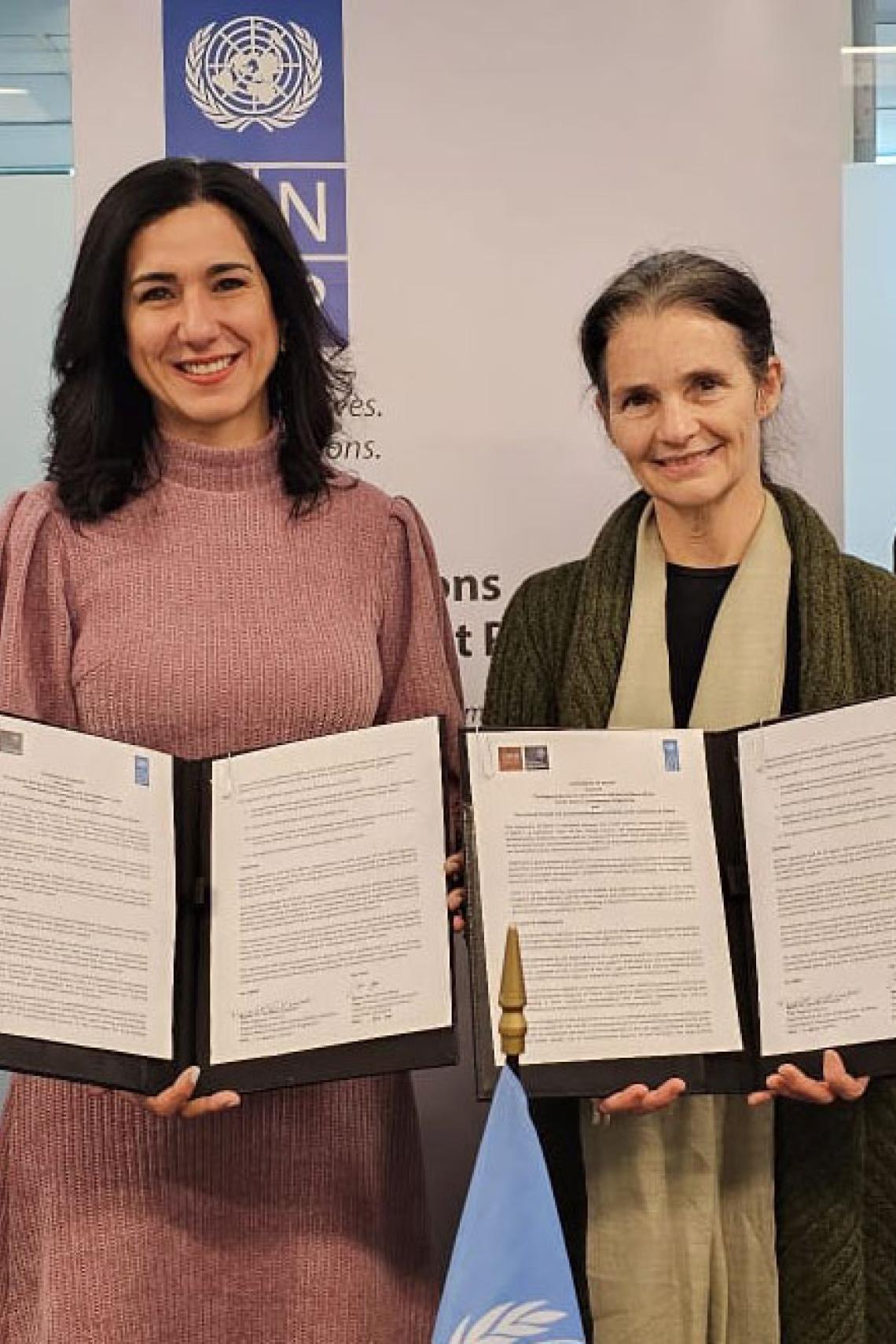OPHI, UNDP strengthen partnership to accelerate multidimensional poverty reduction in LAC
The Oxford Poverty and Human Development Initiative (OPHI) at ODID and the United Nations Development Programme (UNDP) in Latin America and the Caribbean (LAC) have signed an agreement to enhance technical and policy support to countries in the region in the design and implementation of poverty reduction strategies guided by the Multidimensional Poverty Index (MPI).
The collaboration also aims to advance research to provide new evidence on the connections between current multidimensional poverty reduction policies and other national policies, such as productivity, energy transition, and private sector inclusion.
Poverty is complex and considers multiple factors. The Global Multidimensional Poverty Index (MPI) published yearly between UNDP and OPHI shows that multidimensional poverty affects 1.1 billion people worldwide in over 100 countries where data is available, of which over 33 million live in poverty in LAC.
UNDP LAC’s MPI focused on the intersectionality between gender and poverty reveals not only the higher incidence of poverty among women but also the drastic limitation of data to properly analyse their situation. These types of analyses complement income poverty measurement and investigation, allowing a better understanding of the reality of people living in deprivation.
The partnership brings together the cutting-edge academic research of OPHI and UNDP’s long-standing technical capacities, distributed through its 26 country offices in the region serving 42 countries and territories, to better support governments in their efforts to tackle poverty effectively. The cooperation includes knowledge production, training schemes, and combining teams at both institutions to offer comprehensive support to countries.
“This agreement gives our ongoing partnership renewed emphasis to focus on the MPI as a measurement and public policy tool in the region. This region led the world in the early adoption of MPIs. [This] agreement will help sustain efforts towards a multisectoral, tailored, and evidence-based approach to poverty reduction by policy actors across Latin America and the Caribbean”, said Sabina Alkire, OPHI Director and Professor of Poverty and Human Development at OPHI.
The MPI goes beyond income as the only indicator for poverty and explores how people experience it in other central dimensions of life, such as health, education, sanitation, or housing. Poverty reduction efforts need to be accelerated by countries if target 1.2 of the Sustainable Development Goals (SDGs), namely reducing at least by half the proportion of men, women, and children of all ages living in poverty in all its dimensions according to national definitions by 2030, is to be met.
“Confronting poverty is at the core of UNDP’s mandate and a strategic priority for our work in the region" said Michelle Muschett, Assistant Administrator and Regional Director of UNDP for Latin America and the Caribbean. "Latin America and the Caribbean is a pioneer in the adoption of the MPI at the national level. It is now crucial to transition from measurement to stronger use of multidimensional poverty data to design and implement policies to accelerate multidimensional poverty reduction. With this renewed agreement with OPHI we strengthen our capacities to better support governments in the pathway towards ending poverty in all its forms and dimensions.”
The signed agreement adds to the long-standing partnership between OPHI and UNDP, since 2010. In two years, this collaboration is expected to result in a substantial number of policymakers and public sector technicians increasing their expertise in multidimensional poverty measurement, analysis, and policy design. There are also plans to produce clear guidance on how to link policies guided by data with other national strategies.

